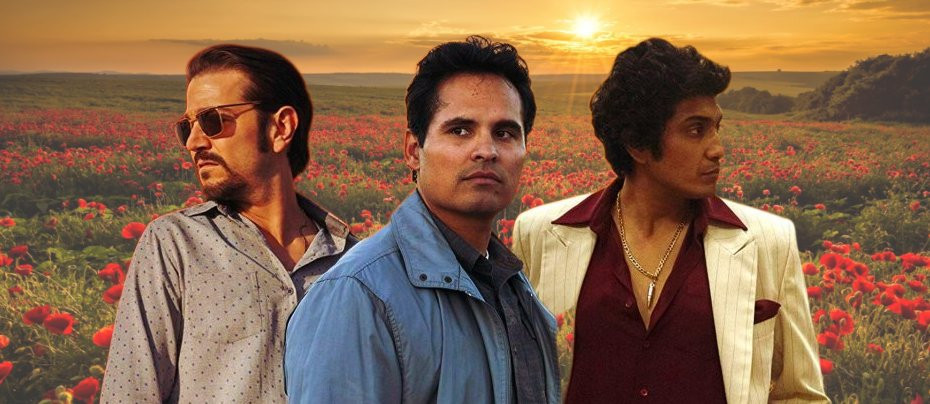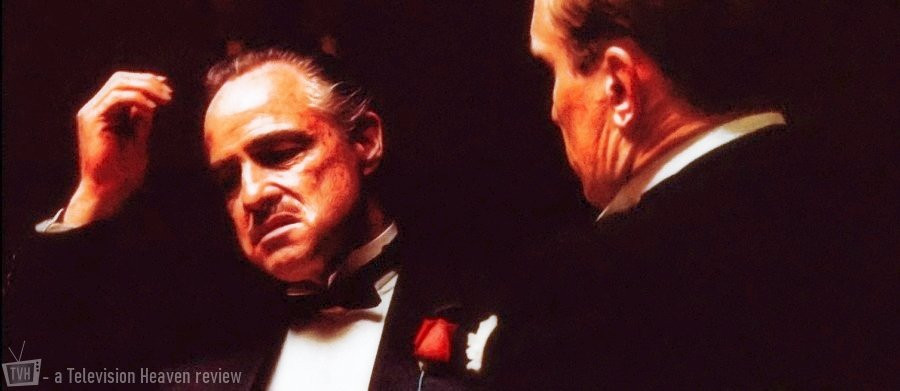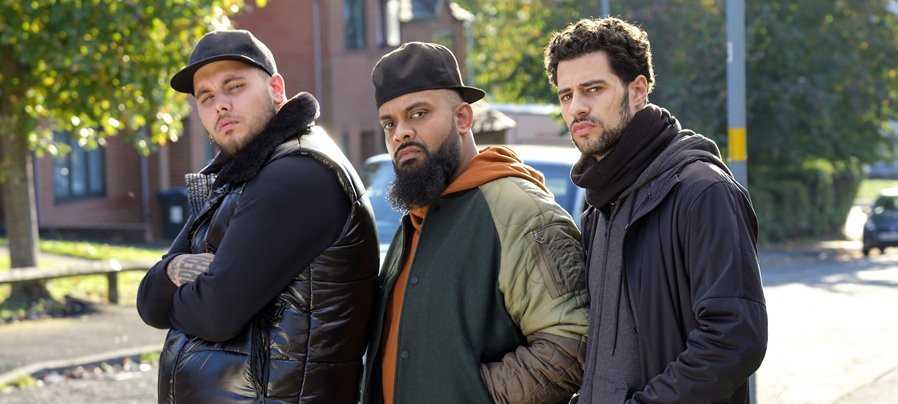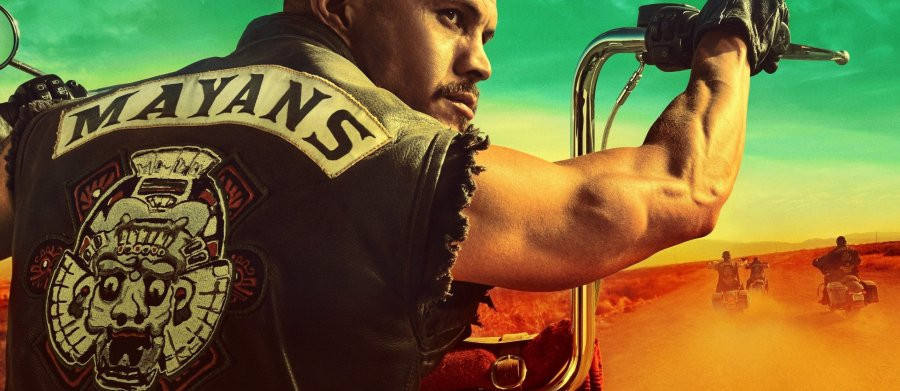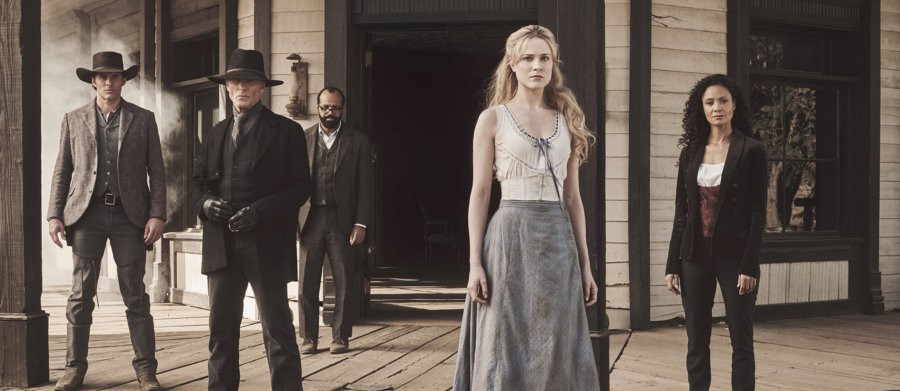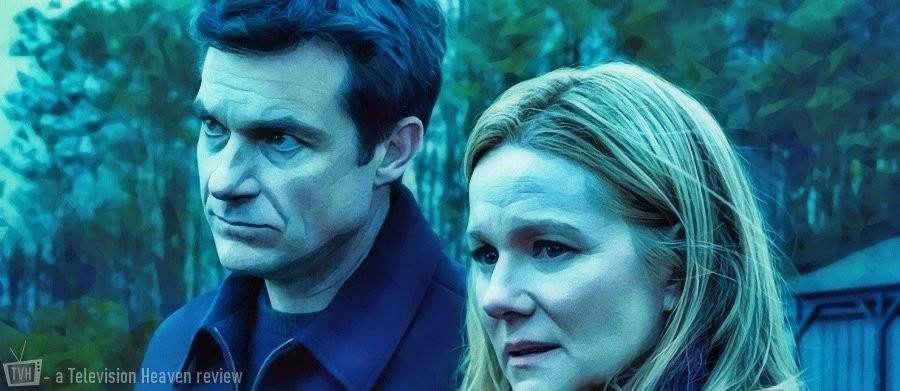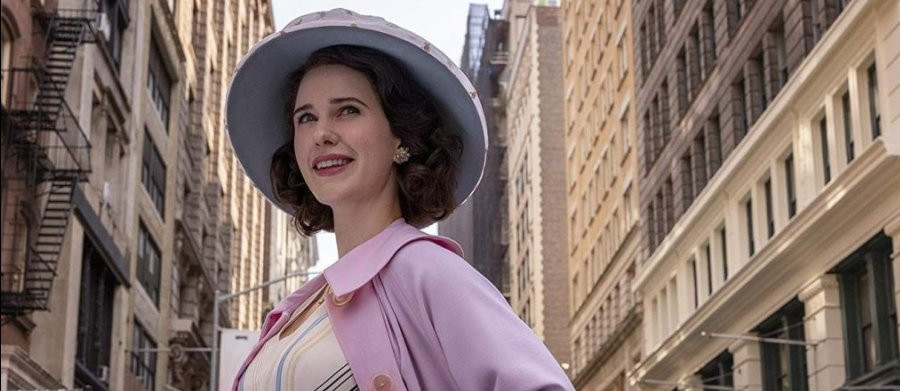
Snowfall
2017 - United StatesThe late John Singleton was one of the most talented and influential filmmakers of his generation. His astonishing 1991 debut Boyz n the Hood, sic, changed the way many Americans looked at their country. The extent to which it is representative or typical of the experience of black people in the United States is a matter of debate, a debate which a white Briton feels unqualified to enter. The point is that the notion of "the Hood" became part of the African American story and that it is now very much part of how black Americans are seen and perhaps how they see themselves.
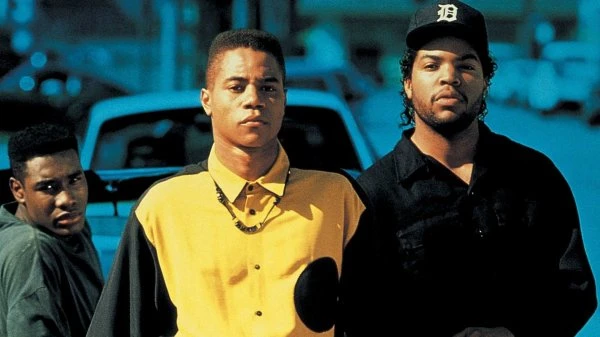
It is significant that in the film it is a sympathetic mature character played by Laurence Fishburne who presents the conspiracy theory that the poverty and violence in black neighbourhoods is the result of deliberate policy on the part of the white Establishment. The other characters express admiration for his intellect and do not question what he says. Whether or not Singleton actually believed this conspiracy theory himself, there was and is no shortage of people eager to listen to it, so he expanded on it when he came to write Snowfall for television.
By this stage his cinematic career had been stalled for several years, so for Snowfall he returned to the comfort of familiar territory, South Los Angeles in the mid-1980s, the initial setting for Boyz n the Hood, still his greatest triumph as well as his first. In Snowfall he merges the conspiracy theory from the film with another, the legend that the CIA funded the Contras in Nicaragua by facilitating the sale of cocaine, including "crack" cocaine, within the United States. Neither the series nor most of the reviews of it make clear that several separate investigations have found absolutely no evidence to support that allegation. There is therefore a real danger that viewers will take what they see in Snowfall as fact when it is fiction. Such things take on added significance in the divided America of 2021 when, even more than usual, people choose to believe what they want to believe.
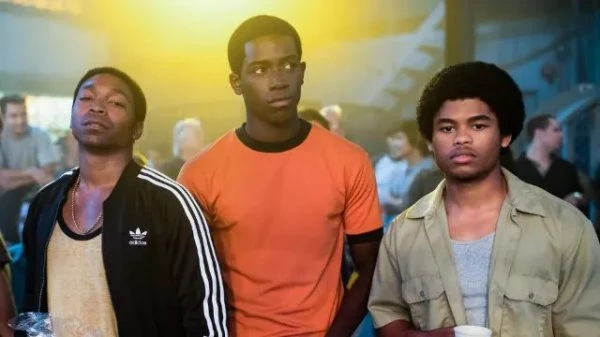
Yet if Snowfall is seriously bad history, it is also seriously good drama. This is a spoiler light overview of its first season only. To be honest, this season is far from its best. The show has taken time to find its way. The early episodes show greater influence of what might be termed the 'Boyz n the Hood' world view, which may indeed reflect how many black people in Los Angeles felt at the time but which might be distancing to many viewers. More important, there are three main strands to the plot, and it is no surprise that the one with the focus on black people is by far the most convincing and the most compelling. Singleton is, of course, like most writers, strongest on home ground.
The other two strands concern a white CIA agent, who deals a lot with other white people, and a pair of unusually sympathetic Mexican drug smugglers, who deal mainly with other Mexicans. If, as it seems, Singleton's original intention was to provide a 'Crash' style tapestry of the separate races in California and how they interact, or barely interact, he is not entirely successful. While he is right about the depth of racial division there, so that, from personal observation, normal social interaction between ethnic groups is the exception rather than the rule, this means that his white and Latino characters are not as well drawn or as interesting as his black characters.
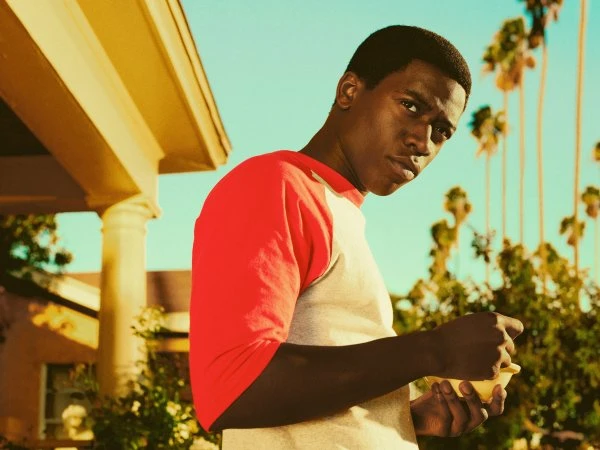
That is not in fact a very harsh criticism because his black characters are outstanding. Best of all is our protagonist - sometimes hero, sometimes anti-hero, sometimes villain - who is given the wonderful name of Franklin Saint. A very intelligent 20-year-old with dreams of bettering himself, Franklin is not evil: he just sees clearly that no one is anything in this world, especially in LA, unless he has money, and that illegal narcotics provide the quickest way for a young black man without qualifications or contacts to get a lot of it. In a real powerhouse performance worthy of comparison with early Al Pacino, or his own hero, Denzel Washington, British actor Damson Idris shows us many sides of a vulnerable and uncertain young man who is developing into Michael Corleone.
Franklin, with the inevitability of tragedy, ends up doing some very nasty things for essentially selfish reasons, but Idris makes sure we never lose sight of his humanity, so we keep asking ourselves what would we do in Franklin's position. That is the essence of all good drama.
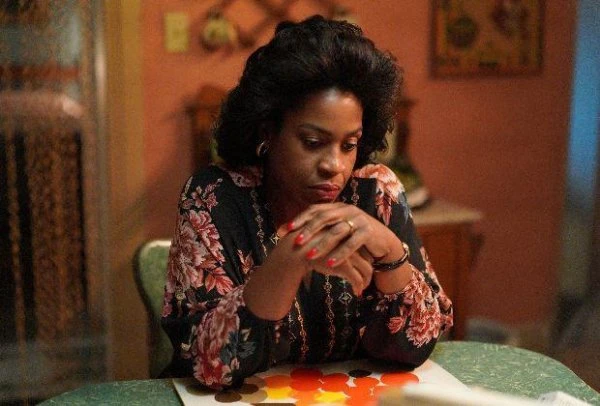
It is significant that Franklin's father, Alton (Kevin Carroll), an alcoholic former Black Panther, has been absent for most of his life, but Snowfall rises above cliché by giving Franklin a supportive family - perhaps too supportive. He does have a strong male role model, but since his hyper-masculine uncle Jerome (Amin Joseph) is a low-level drug dealer, this is not necessarily a good thing. His childless "aunt" Louie (Angela Lewis) also dotes on him. Between them they introduce him to the world of illegal narcotics and prove to be very supportive in all his subsequent enterprises, despite occasional reservations. Franklin is initially very careful to keep his involvement with their business from his mother, Jerome's sister, Cissy (Charlene "Michael" Hyatt), a hardworking and mostly law abiding businesswoman who fears for her only son's future.

As he moves from marijuana to cocaine to the highly addictive new product of "crack" cocaine, Franklin finds that reliable help is hard to find. Yet his best friend Leon (Isaiah John), who comes across as sullen and not very bright, proves that he is someone to trust in difficult situations when Franklin himself seems to lack what it takes. Meanwhile, Andre (Marcus Henderson), the cop who lives next door to the Saints, views Franklin with growing suspicion.
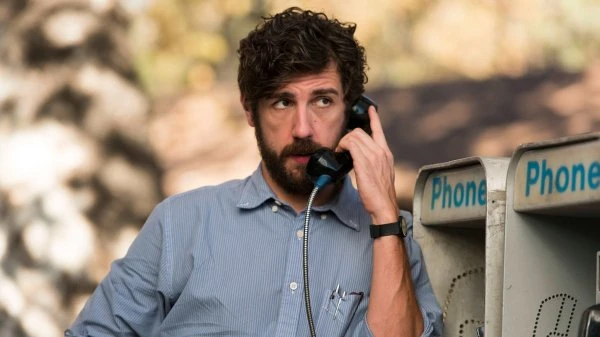
In another part of the City, patriotic but burnt out CIA Agent Teddy McDonald (Carter Hudson) is tasked with clearing up after a fellow Agent who died in embarrassing circumstances. In the process, he sees a way of funnelling huge sums of money to the Anti-Communist Contras after the US Congress cut off their funding. This brings him into contact with high living Contra Alejandro (Juan Javier Cardenas) and eccentric Israeli "businessman" Avi (Alon Aboutboul).
For a long time Teddy's thread seems to be played for laughs, at least in a very dark humour sort of way. He gets into one absurd situation after another. Only gradually does in become clear that that this apparently likeable loser is nevertheless a ruthless and sometimes very effective expert in the dark arts of subversive warfare.
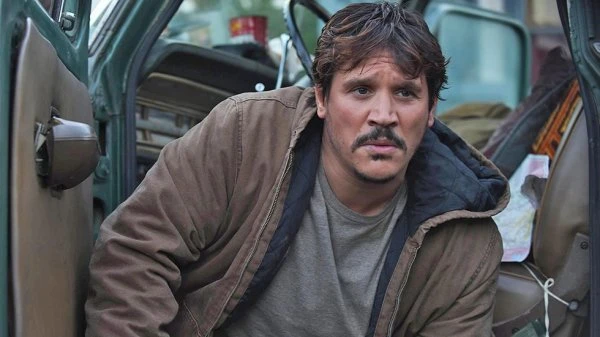
The tertiary protagonist is Gustavo "El Oso" Zapata (Sergio Peris-Mencheta), a bearlike Mexican all-in wrestler or 'luchador.' Although he is a fine character, with a brooding magnetism behind an oddly likeable demeanour, his unlikely romance with the rebellious daughter of a Mexican smuggling dynasty, and their development of their own operation, is the least likely and least interesting of the three strands of the first season. The Latino characters rarely rise above stereotype.
It does not help that, although they are obviously destined to become intertwined, the three strands are kept almost entirely separate for most of the first season. So we are bored by the Mexican strand when we really want to get back to find out what is happening to Franklin. The CIA strand serves as comedy relief, sometimes a welcome change of tone in a basically grim tale, sometimes tiresome when it breaks the tension of the main storyline.

That tension is maintained very effectively by skilled directors, including Singleton himself. Individual sequences are full of suspense. There is no certainty which way the story will go. The characters all make mistakes and other setbacks come out of the blue. Franklin's errors are those of a young man, ignorant and naive, swinging wildly between overconfidence and insecurity. The viewer can often see trouble coming when Franklin seems to ignore clear warning signs. That he survives several obviously bad choices seems almost miraculous. However, the viewer sticks with him because he learns from his experiences. Whatever else he may be, Franklin is not stupid. We remain invested in what is essentially a coming of age story. We continue to care about Franklin in part because of his fallibility.
The point is well made that success never comes easily. Franklin and the other characters often appear to be taking two steps back for every step forward. It seems they will never get their enterprises off the ground until eventually they find that they are succeeding. This is authentic - life tends to works this way - but it can be frustrating for those viewers eager for the false glamour of successful organised crime. After all, Pacino as Tony Montana in 'Scarface' has become the defining image of the illegal narcotics trade in the 1980s. That is what we have come to expect.

In fact the production made the wise decision to avoid or tone down the excesses of Eighties style. This gives it a credible feel because life for most people at that time had little to do with the clichés that are usually presented these days as typical of that decade. Indeed, the design, costumes, and props departments exhibit a flawless sense of period. The Eighties now seems like an odd time: the casual affluence of the West, even in deprived areas, gives it an almost contemporary air, which makes the general absence of things like personal computers and mobile telephones all the more jarring. It is hard to imagine now that this was a decade in which the casual use of pagers and answering machines was still seen as being on the cutting edge. Less than twenty years separate the setting of Snowfall from The Wire, but they are different worlds technologically, even if they have much in common socially.
The first season of Snowfall is very much an introduction to a different time and place. As such, it sets up the drama but does not exploit it fully, not yet. The show's real glories come in subsequent seasons, but it is worth waiting for them.
Seen this show? How do you rate it?
Seen this show? How do you rate it?
Published on October 14th, 2021. Written by John Winterson Richards for Television Heaven.


